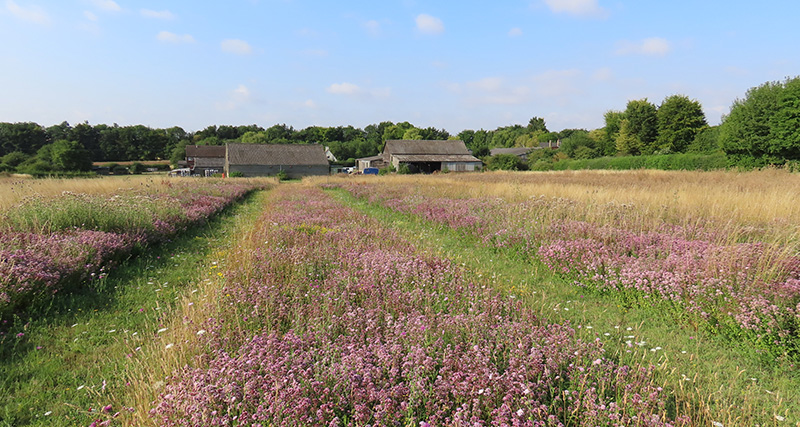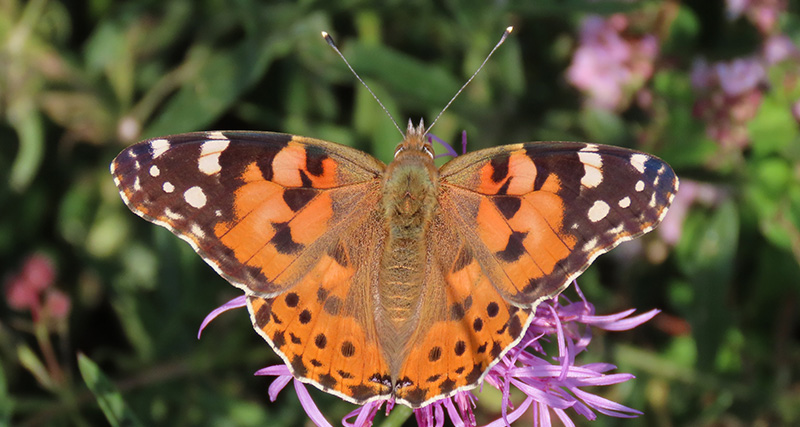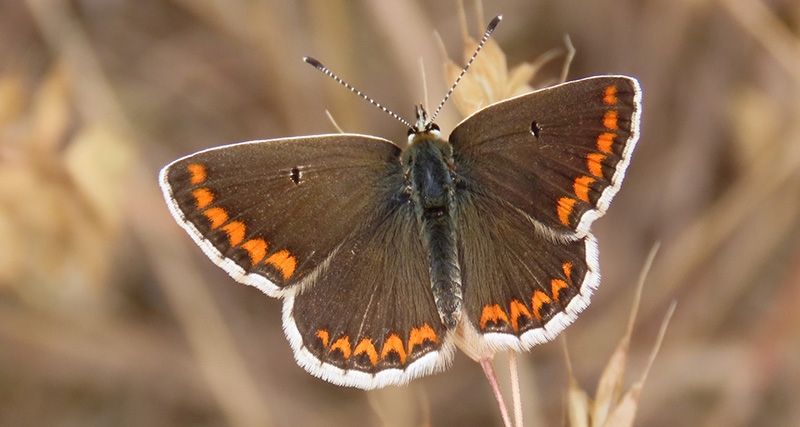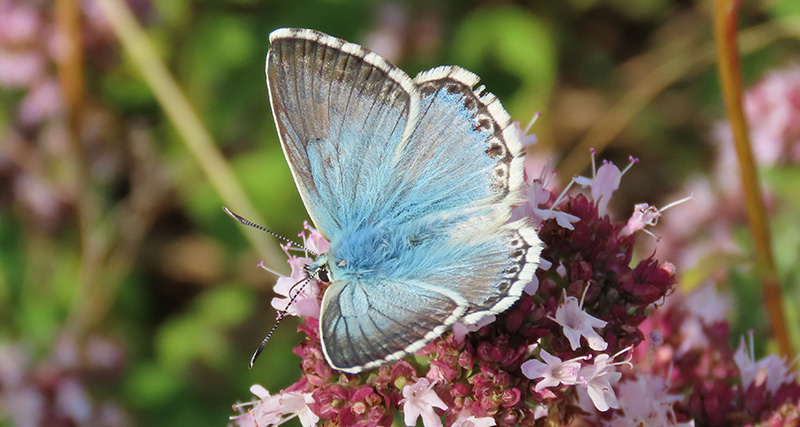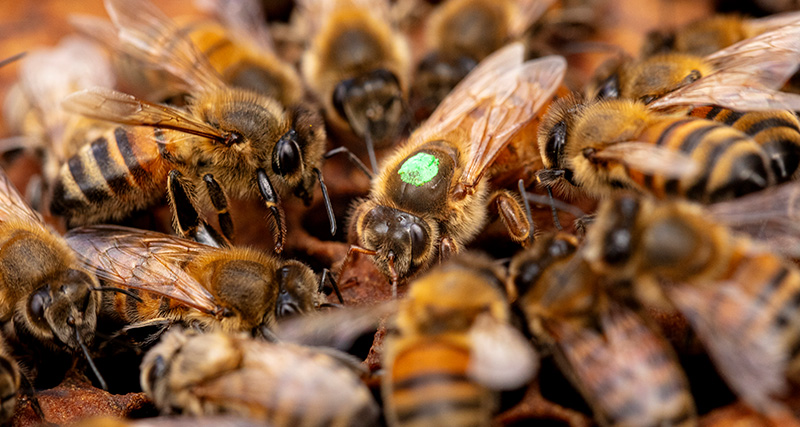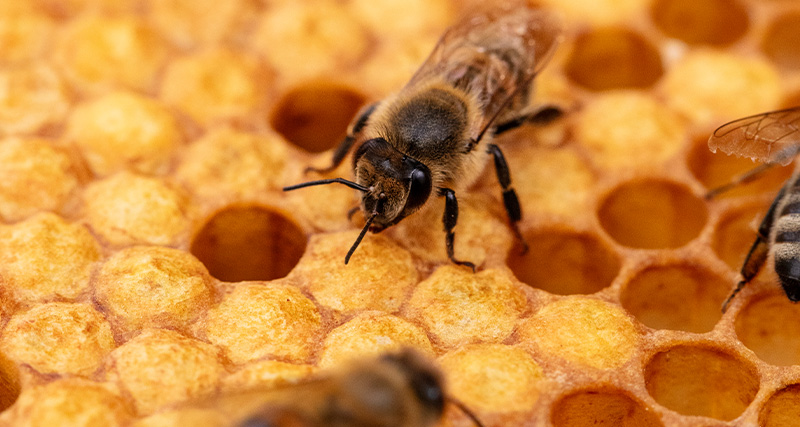Defra’s annual Bees’ Needs Week takes place 14–20 July, and sees conservation groups, businesses and charities come together to raise awareness of the importance of pollinators.
The groups share ideas, actions and activities that highlight the ways in which everyone can help bees and other pollinators to thrive.
Each year Bees' Needs Champions are celebrated to recognise examples of exceptional initiatives undertaken by local authorities, community groups, farmers and businesses to support pollinators.
How NFU members are looking after bees’ needs
Edward Darling
Edward farms mostly cereals on 200 hectares in East Anglia.
He was motivated to get involved in Bees’ Needs as part of a long-term commitment to the stewardship of habitats and associated species typical to the natural area.
He’s extended the use of winter cover crops through the summer to test benchmarking systems for pollinators linked to the UN Sustainable Development Goal for Life on Land. The role of long-term species-rich grassland will have huge value to butterfly populations.
Edward said: “One of the big lessons and benefits of getting involved in the Bees’ Needs project was the range and abundance of bees attracted in the context of wider pollinators and other taxonomic groups.

"We continue to do further work with the pollinator monitoring survey to make national benchmarking available.”
Stewart Wood
Stewart farms apples and pears at Teynham Court Farm in Sittingbourne, Kent.
He also keeps a flock of breeding ewes, runs a cold storage unit and sells hay off the marshland for horses.
He originally introduced bees onto his farm more than 30 years ago on the recommendation of his ADAS (Agricultural Development and Advisory Service) farm adviser.
When his first bee farmer died, Stewart did without the service for four or five years but noticed a decline in his crop yields and contacted the BFA (Bee Farmers' Association). His contracted pollinator was the father of Paul Horton, BFA Vice-chair and Regional Director, North and Midlands.

Many years later, Paul still provides around 40 hives each year for around a fortnight if there is good weather, or for longer if the weather is worse.
“It’s a very efficient service. Paul comes and distributes the hives around the farm wherever we want them,” said Stewart. “You can really see the difference in the crop when we have bees, and we always gain from having them here. The bees work very hard in a good year and even in a bad year we have considerably more apples than elsewhere, and always get the pollination fee paid from the increased yield to justify the expense – we gain all the time.
“I would thoroughly recommend getting bees in. It’s surprising how many small beekeepers there are around when you start to look. However, if you run a larger farm, it can be hard to find a small beekeeper with enough hives, which is where the BFA comes in. They also ensure their bees are healthy – monitoring their hives for any signs of pests and disease – it’s like any livestock farming, you need to keep them in good health for the sake of the other local livestock.”
How pollinator FIT is your farm?
If you’ve got a spare 10 minutes, you can get involved with valuable citizen science and use the simple FIT (Flower-insect timed) Count app to see how fit your farm is for pollinators.
All you need to do is watch a patch of flowers, and use the FIT Count app to record the different insects that land there over a 10 minute period.
The counts can be done in anywhere, anytime from April to September, provided the weather is warm and dry.
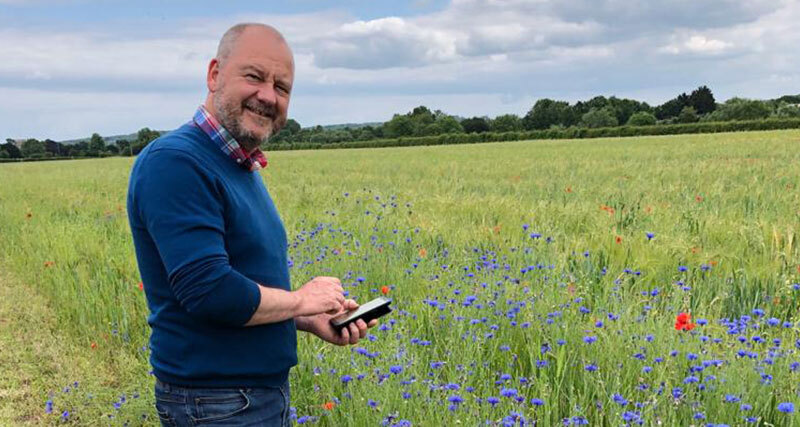
Photograph: NFU senior regulatory affairs adviser Dr Chris Hartfield does a FIT count
Every count gets sent to the world-leading UK PoMS (Pollinator Monitoring Scheme), which is providing essential data on pollinator populations and how they might be changing over time.
Visit ukpoms.org.uk | FIT counts and download the app today – ready for a warm day in April to start counting!
NFU senior regulatory affairs adviser Dr Chris Hartfield said: “I’ve been regularly doing FIT counts for a few years, mainly on dog walks.
“While it’s great to contribute to some really valuable citizen science, it also makes you take a bit of time-out to stop and notice the changing wildlife around you. My dogs are well used to sitting still for 10 minutes while I’m staring at a hedgerow or patch of hogweed.”
124974,124975,124976,124977,124969,124970
Photographs: Glyn Evans/NFU

